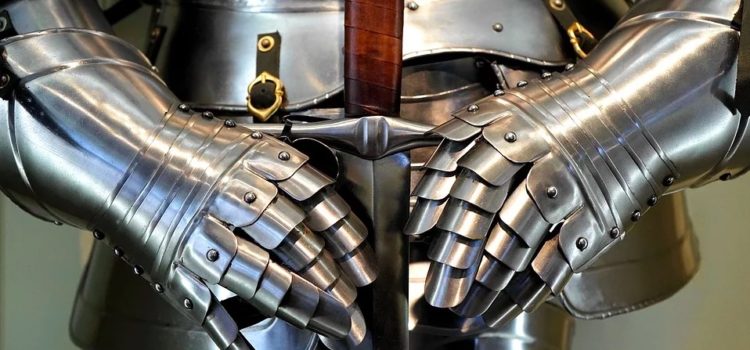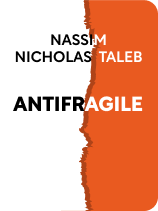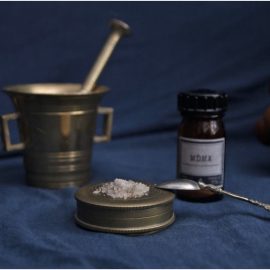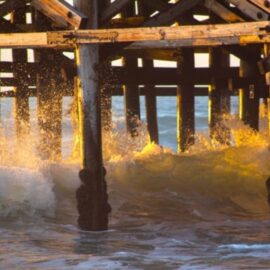

This article is an excerpt from the Shortform book guide to "Antifragile" by Nassim Nicholas Taleb. Shortform has the world's best summaries and analyses of books you should be reading.
Like this article? Sign up for a free trial here .
What is simulated annealing? Can a simulated annealing example help you understand how societies can be antifragile?
Annealing is a process used to make metals stronger and improve impurities. Inspired by this process, mathematicians created a process called simulated annealing, which evaluates systems and finds ways to improve. Author Nassim Nicholas Taleb proposes that we can apply this process to politics as well.
Keep reading for a simulated annealing example that can help explain antifragility.
Randomness Is Necessary
The previous chapters have shown the trends of antifragile systems: They improve after encountering some small degree of randomness, and they get stronger from (minor) damage. We’ve also discussed how controlling such a system too tightly will eventually backfire, perhaps catastrophically. In this chapter we’ll further explore the benefits of adding randomness to a system and, conversely, the dangers of over-intervening in naturally antifragile systems.
The philosopher Jean de Buridan proposed a thought experiment: A donkey who is equally hungry and thirsty, placed at an exactly equal distance from water in one direction and food in the other, won’t be able to decide which way to go. It’ll be stuck in that spot until it dies of hunger or thirst.
However, we can help Buridan’s donkey by adding a small dose of randomness to the system. Giving the donkey a small push in one direction or the other will put it closer to either the food or the water, allowing it to finally make a decision and thereby saving its life. Which direction you push doesn’t matter—as long as something changes, the balance is broken and the donkey is saved.
Annealing—Real, Simulated, and Political
In metallurgy, annealing is a process used to make metal stronger and remove impurities. It involves heating the metal and then carefully cooling it. The increased energy from heating the metal excites the atoms and breaks them out of their current positions, then the controlled cooling gives them the chance to find new, stronger arrangements. In other words, introducing a short period of randomness to the system produces a stronger product.
Mathematicians have developed a computer simulation technique inspired by annealing and called—appropriately enough—simulated annealing. Rather than immediately trying to find the best solution to a given problem, the computer will also accept less effective solutions, because they might be near to the actual best solution.
To visualize simulated annealing, start with this example. Imagine a graph with numerous peaks and dips, some higher than others. A computer looking for the highest point on the graph might find one of those peaks, check to either side of it and find that the graph is going down, and determine that it’s found the best solution. However, a computer using simulated annealing would randomly pick various points on the graph and search for the highest point to either side of those points. By doing so, it’s more likely to find the actual highest point.
The annealing process applies to politics, too, and has since ancient times. Athenian assemblies, for example, were chosen by lottery. Much more recently, the physicist and mathematician Alessandro Pluchino used a computer simulation to show that a certain number of randomly selected members can make a parliament function more effectively, perhaps because those people bring different perspectives and ideas with them.
Nor was politics the only area where ancient Greeks took advantage of randomness; they used various methods of getting random results and called it divination. An Athenian faced with a difficult choice might open Virgil’s Aeneid to a random page and interpret the first line she sees as advice from the gods. This would allow her to proceed with confidence that her path had been ordained by a higher power, without anxiety over the outcome—after all, even if it’s disastrous, it’s not her fault.
Another way to reshuffle political structures is the time-honored tradition of assassination. Killing an important political figure often shakes others loose from their established roles as they scramble around to fill the sudden void in their power structure. One very public example of this was when mafioso John Gotti killed the capo of his family and took his place.
In both metals and politics, you can think of simulated annealing examples. Long periods of stability—or, worse, enforced stability, as we discussed earlier—allow impurities to gather beneath the surface and destabilize the whole structure. In the case of metals, this simply leads to a weaker material; in the case of politics, it often leads to violent and messy blowups, up to and including civil wars.

———End of Preview———
Like what you just read? Read the rest of the world's best book summary and analysis of Nassim Nicholas Taleb's "Antifragile" at Shortform .
Here's what you'll find in our full Antifragile summary :
- How to be helped by unforeseen events rather than harmed by them
- Why you shouldn't get too comfortable or you'll miss out on the chance to become stronger
- Why you should keep as many options available to you as possible






